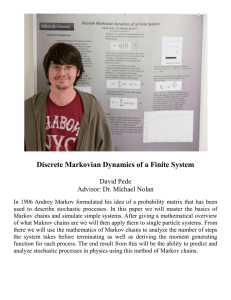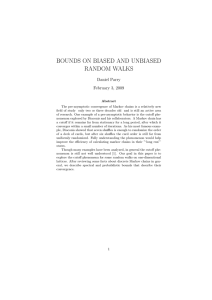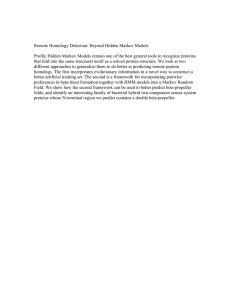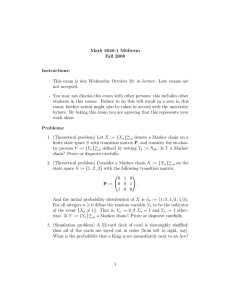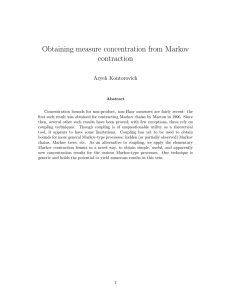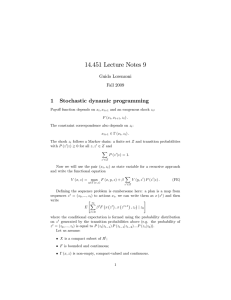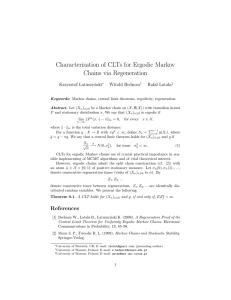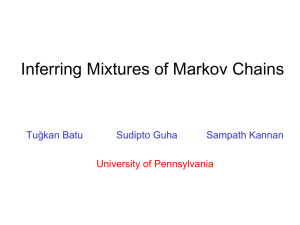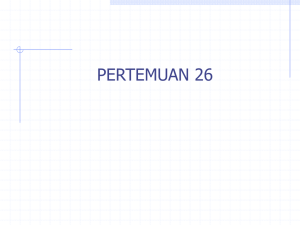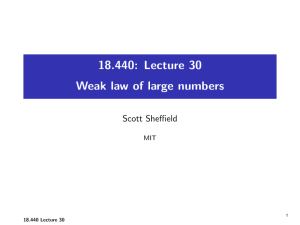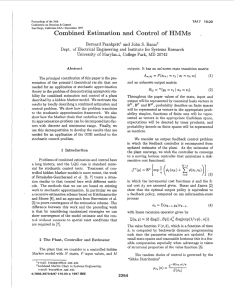Convergence of finite voter model densities Ted Cox, Syracuse University Let S
advertisement
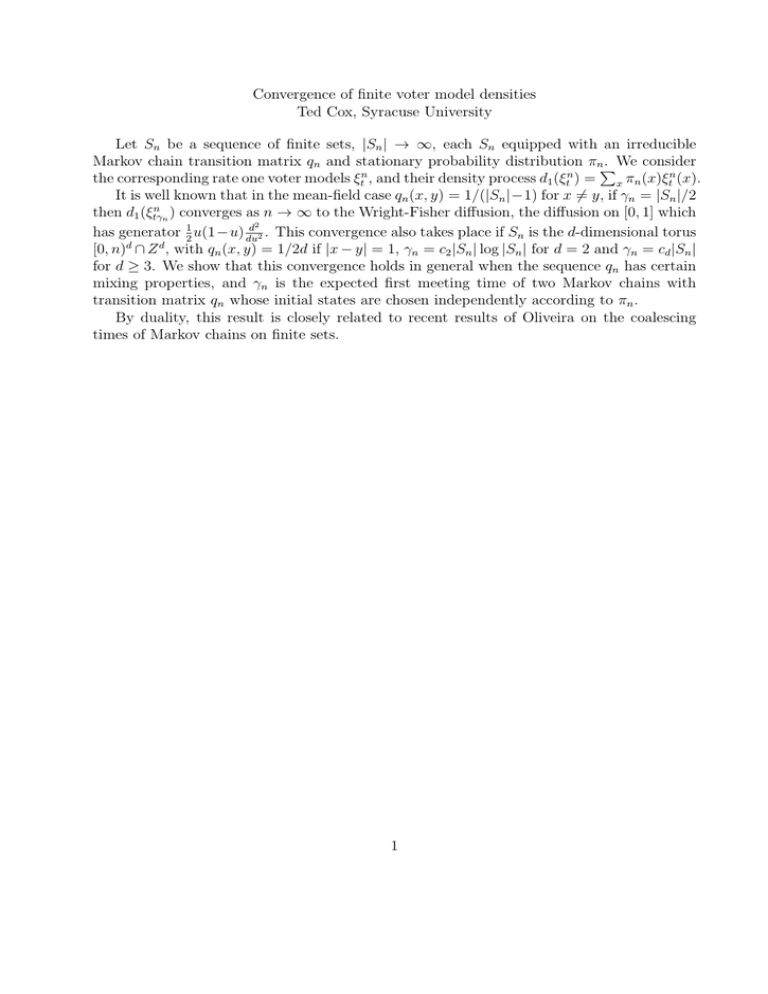
Convergence of finite voter model densities Ted Cox, Syracuse University Let Sn be a sequence of finite sets, |Sn | → ∞, each Sn equipped with an irreducible Markov chain transition matrix qn and stationary probability distribution πnP . We consider the corresponding rate one voter models ξtn , and their density process d1 (ξtn ) = x πn (x)ξtn (x). It is well known that in the mean-field case qn (x, y) = 1/(|Sn |−1) for x 6= y, if γn = |Sn |/2 n ) converges as n → ∞ to the Wright-Fisher diffusion, the diffusion on [0, 1] which then d1 (ξtγ n d2 has generator 21 u(1−u) du 2 . This convergence also takes place if Sn is the d-dimensional torus [0, n)d ∩ Z d , with qn (x, y) = 1/2d if |x − y| = 1, γn = c2 |Sn | log |Sn | for d = 2 and γn = cd |Sn | for d ≥ 3. We show that this convergence holds in general when the sequence qn has certain mixing properties, and γn is the expected first meeting time of two Markov chains with transition matrix qn whose initial states are chosen independently according to πn . By duality, this result is closely related to recent results of Oliveira on the coalescing times of Markov chains on finite sets. 1
